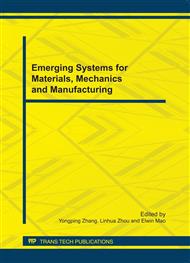p.681
p.685
p.690
p.695
p.699
p.703
p.707
p.711
p.715
Study on Word Association Knowledge and Reading Ability
Abstract:
Improving reading comprehension ability has always been a big concern for the English learners. It is also one of the most important parameters to measure one’s English level. Research has found that many factors may influence the learners’ reading comprehension ability. In this paper one aspect of vocabulary, word association knowledge, has been proved to facilitate reading comprehension. Through Pearson Correlation and one-eay ANOVA analysis the authors found that word association knowledge had a significant influence on reading comprehension. New words cannot make any sense to the learner until they have been integrated into other knowledge that the learner has already acquired. The vocabulary students have already acquired is something like an associative network which is closely related to their prior experience of first language acquisition and their knowledge of the world. Therefore, both the width and depth of vocabulary should be integrated into English teaching.
Info:
Periodical:
Pages:
699-702
DOI:
Citation:
Online since:
October 2011
Authors:
Price:
Сopyright:
© 2012 Trans Tech Publications Ltd. All Rights Reserved
Share:
Citation:


